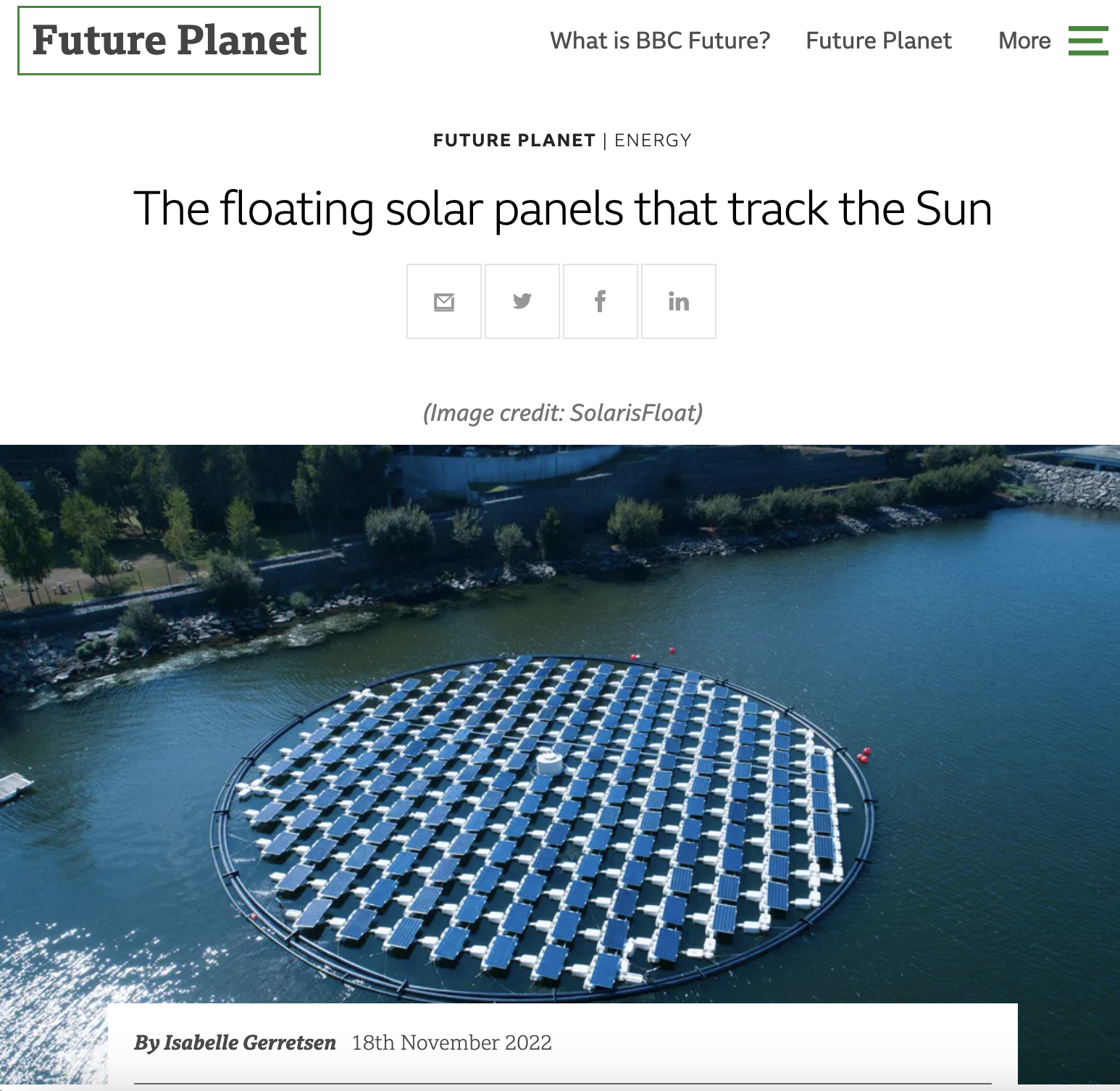Our 2021 paper, Floating solar PV to reduce water evaporation in water stressed regions and powering water pumping: Case study Jordan, has been referenced in the BBC Future Planet’s articleThe floating solar panels that track the Sun. The BBC article, specifically focuses on floating photovoltaics (FPV). Our study addressed water ponds in Jordan where water scarcity in one the highest in the world. The work provided modelling based on real site data and showed the benefits accrued in using FPV to prevent water evaporation whilst producing enhanced electrical power due to the cooling effects of the water. The BBC article noted that ‘a 2021 study found that floating solar panels on a reservoir in Jordan, one of the world’s most water-scarce countries, reduced evaporation by 42%, while producing 425 MWh of electricity annually.’
Prof Bahaj who supervised and contributed to the work commented “this work is very important as it addresses the two pillars of the energy-water-food nexus, where the utilisation of the FPV produces power for water pumping, enhanced by water evaporative effects, and conserves water resources contributing to better crops. The work is currently being extended to other areas in the world where such applications will create maximum impact for the energy-water-food nexus.
Click here to read the full study which details how water evaporation and power are challenges in water-stressed & developing countries and click here to read the Future Planet article on the floating solar panels.


